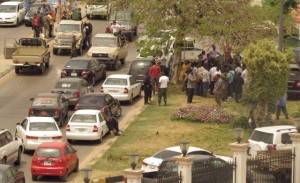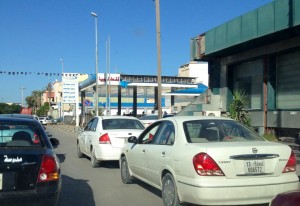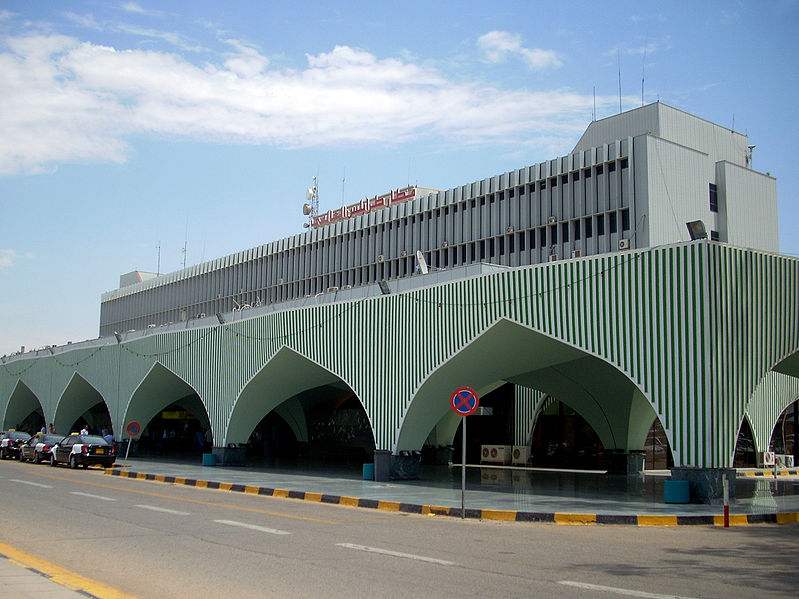By Nihal Zaroug.

Tripoli, November 8:
The General National Congress (GNC), has passed legislation reinforcing the right of peaceful demonstration but forbidding the . . .[restrict]carrying of even licensed weapons at any protest.
The GNC itself has been subject to disruption by demonstrators. Most recently, the legislature was stormed by protesters opposing members of Prime Minister Zeidan’s cabinet, which resulted in a postponement of the voting in of the country’s new ministers. During the interrupted voting session, several congressmen said that they could not vote under duress and the session was rescheduled to the following day, derailing a key moment in Libya’s democracy building.
During the attempted storming of government headquarters by armed protestors, on 8 May, Ali Meilood Al-Gaoud, a security official was killed and four others injured. Protestors armed with light and heavy weapons tried to force their way into the building.
The new law gives citizens, political parties, civil society organisations and trade unions the right to organise demonstrations ,in accordance with the interim constitution, while maintaining public order and ensuring that public facilities are not obstructed.
Article Four of the law stipulates that each rally, protest or sit-in must have an organising committee, consisting of a head and two members, whose names must be submitted to the security department responsible for safeguarding the location of the planned protest. This organising committee is responsible for maintaining order during the protest, and must prevent actions and speech that incite violence or threaten public order.
The organising committee must submit a written request to the Security Directorate, including date and place of the demonstration, 48 hours before the protest. The authorities may choose to change the location and date of the planned protest, 24 hours before it takes place, if it is deemed a threat to the public interest and safety . The protest organisers may contest the ban through the Ministry of Interior. In accordance with the law, authorities may not ban a protest unless deemed a threat to public security.
The new law also gives authorities the right to request that organisers end the protest, should it violate public order or impede them from doing their duty.
Weapons even if licensed, are not allowed to be carried by protesters. Article 10 of the law, states that any protests organised without taking account of the guidelines outlined in the new legislation, will be categorised as a riot and will be punishable in according with the Libyan Penal Code.

The severe impact on the general public of protests staged by armed demonstrators, was once again apparent on 4 November at the Zawia refinery. This facility was blockaded by revolutionaries demanding that injured colleagues be treated abroad. The result was long queues for most of the week at petrol stations in and around Tripoli, leading to panic buying which worsened the situation. Zawia’s refinery provides petrol for most of western Libya and its obstruction gave further impetus to the promulgation of the new legislation.
The question now is how well the security forces will be able to implement the law, moving in to arrest and disarm any gun-carrying demonstrators. The concern must be that this will lead to further ugly confrontations. Unless the security forces far outnumber the armed demonstrators, the authorities run the humiliating risk of being forced to back down.
[/restrict]









